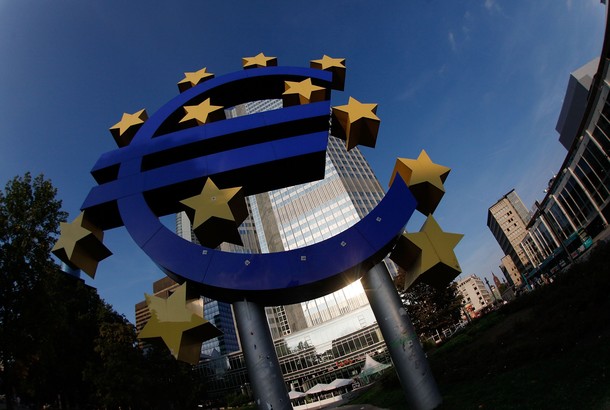Germany ought to be able to debate its eurozone partners on the shape of needed economic reform without conjuring up historical fears of hegemony.
After all, the European Union experiment has produced for its members the most sustained period of peace and prosperity they have ever enjoyed. But as time passes and the euro crisis escalates, the conversation is increasingly fraught.
On the one side, German Finance Minister Wolfgang Schauble and the Bundesbank resolutely oppose a greater rescue role for the European Central Bank, condemning that as a temporary fix that would spur inflation and undermine the institution’s credibility while leaving unchecked spending by member governments.
On the other side are countries that see Germany as once again poised to plunge Europe into the abyss, this time in thrall to notions of fiscal orthodoxy. What these countries hear is German fears that its economic strength is being sapped by profligate Mediterraneans. What these countries know is that they have served as essential export markets for German industry, which has benefited greatly from the single currency that Berlin now seems willing to put at risk.
According to these countries, Germany is depriving the continent’s beleaguered economies of needed support from the European Central Bank, apparently until they agree to new EU treaty provisions that would impose stronger and more effective fiscal controls. And, they argue, Germany should recall only too well the consequences of imposing onerous treaty terms on the vanquished.
In spite of the eerily familiar undercurrent to this unspoken dialogue, the worst could be avoided with an infusion of flexibility and less hair-trigger sensibilities — on all sides. Germany should recognize that it has succeeded in moving key eurozone governments (Italy, Greece and Spain) in the direction of greater fiscal discipline and accept the necessity of action now to restore market confidence. The other eurozone members must do more than acknowledge that the present E.U. integration model is flawed and unfinished; they must work urgently to repair and complete it, as France is doing. The coordinated intervention Wednesday by the world’s top central banks in no way diminishes the exigence of the European task.
More than two centuries ago, soon after declaring independence from Britain, the 13 original colonies established the United States of America through the Articles of Confederation. But they declined to give real authority to the federal government. This failed experiment lasted from 1777 until 1789, during which time the United States learned some hard lessons that it has too often and, at great cost, had to re-learn: Collective responsibility requires a strong political center, and a union that lacks the power to enforce its rules among constituent states cannot function. The analogy is imperfect, and the desired end point for the European Union may not be a constitutional federalism. But Europe does not have the luxury of 12 more years to figure it out.
Daniel Price is a member of the Council’s Business and Economics Advisors Group and managing director of the consultancy firm Rock Creek Global Advisors LLC. He was assistant to President George W. Bush for international economic affairs from 2007 to 2009 and his personal representative to the Group of Eight and the G-20. This piece was originally published in The Washington Post.
Image: ecbeuro.jpg
